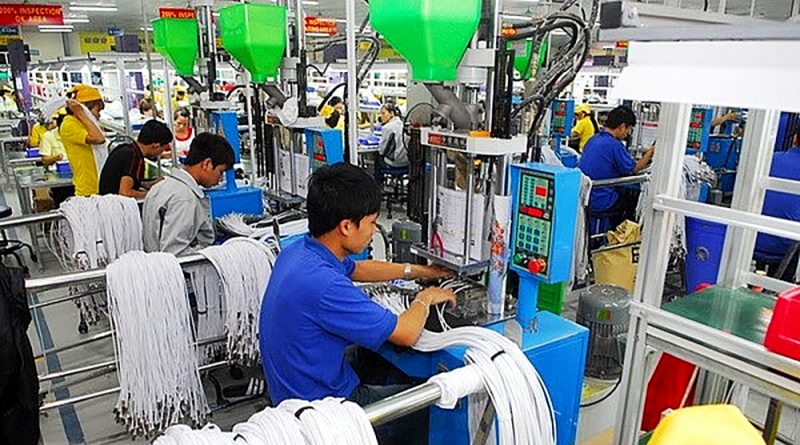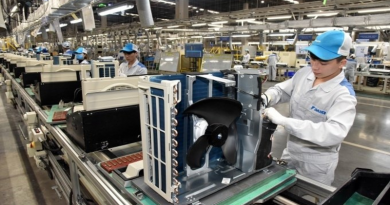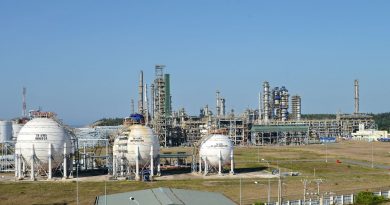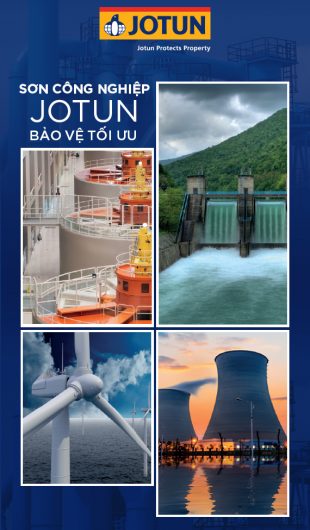Foreign-invested enterprises in southern Vietnam gearing up for CPTPP
Foreign-invested companies in the southern region are increasing investments and preparing for opportunities after Vietnam officially joins the Comprehensive and Progressive Agreement for Tran-Pacific Partnership (CPTPP).
Textile and garment industry speeding up
Talking to VIR, deputy general director of French group Scavi JSC, Nguyen Chi Thanh, said that in the recent years, North America and Japan are the group’s key export markets, accounting for some 40 per cent of its total revenue. Vietnam’s joining the CPTPP, however, has been pushing Scavi to make elaborate preparations.
Earlier this year, the company has put its fourth factory into operation in Thua Thien-Hue province’s Phong Dien Industrial Zone. Additionally, Scavi has proposed building the Phong Dien garment and textile supporting industrial zone to attract investment.
“Scavi have held discussions on providing incentives and attracting investment to Phong Dien garment and textile supporting industrial zone with around 30 domestic and foreign leading material suppliers,” Thanh said, adding that this strategic move will bring Scavi closer to its aims of becoming one of the world’s top enterprises in lingerie, swimwear, and sportswear by 2022, with an expected annual revenue of $200 million.
Another giant in the textile and garment industry, Hyosung Corporation, is also in the process of expansion in Vietnam. According to managing director of Hyosung Vietnam Company Limited, Yoo Sun Hyung, the company has invested some $1.5 billion solely in Dong Nai province, but is still planning to expand its fibre manufacturing projects. However, the enterprise’s proposal to invest in Nhon Trach 5 IZ has been repeatedly rejected as there is no land available.
Recently, Korea-based Hi Knit Company Limited was granted an investment license at Nhon Trach 6A IZ. With the total registered capital of $40 million, the company produces textiles as well as nonwoven fabric for export and domestic foreign-invested companies.
In Binh Duong, Taiwan’s Far Eastern, whose registered capital is $25 million, has just received the license to invest in VSIP II-A.
Sector with potential
According to experts, the textile and garment industry will not be the only sector to benefit when Vietnam officially joins the CPTPP, as aquaculture, timber manufacturing, logistics, realty, and agriculture also look at bright prospects, as more FDI will reach these sectors.
Recently, feed manufacturers Cargill and CJ have been successively launching factories in southern Vietnam. The largest of these factories is owned by Cargill. With the total capital of $28 million, the factory is located on a land area of 48,000 square metres and will produce some 240,000 tonnes of hog and poultry feed annually.
In the meantime, numerous foreign-invested enterprises in other sectors are completing investment procedures to start projects. For example, Binh Duong has recently granted the license to Taiwan-based Vietnam Waytex International Company Limited’s $25 million furniture manufacturing project in Bau Bang IZ. As soon as it received the license, the company has started the construction.
Taiwanese group Kenda has invested an additional $56 million into its factory in Giang Dien IZ to expand its tyre manufacturing capacity for domestic and export markets. Its manufacturing materials are mainly natural rubber from Dong Nai and the nearby regions.
On November 11, Japanese firm Yuwa Vietnam Company Limited officially launched its second factory on a land area of 2.2 hectares in Binh Duong’s VSIP II. Its first factory, which is also in Binh Duong, was built from $4 million in 2009 and produces moulded electronic plastic components.
“Big investors coming to Vietnam always look for domestic suppliers of high-quality components to reduce the cost of importation,” a representative of Yuwa Vietnam said, adding that this is an opportunity for the firm to expand production. In addition, Yuwa Vietnam is also scheduled to build a research and development centre in Vietnam to increase production.
Sharing his opinion about the investment trends of Japanese companies, president of the Japanese Business Association in Ho Chi Minh City (JBAH) Kadowaki Keiichi stated that in 2018 and onwards, more and more Japanese enterprises will continue investing in the Southern regions.
Although individual investments will be of average magnitude, as the majority of these enterprises work in the supporting industry and mainly apply advanced technology, they can produce millions of products annually.
Source: vir.com.vn









